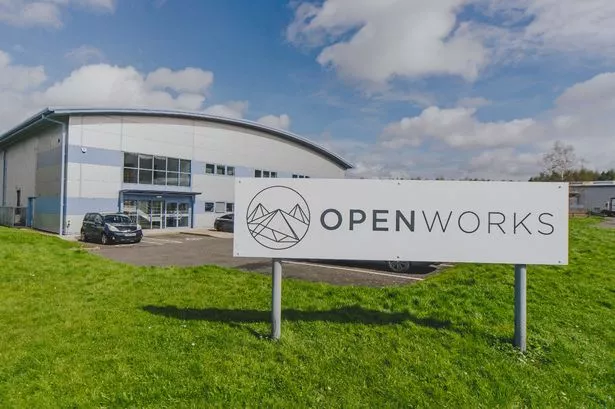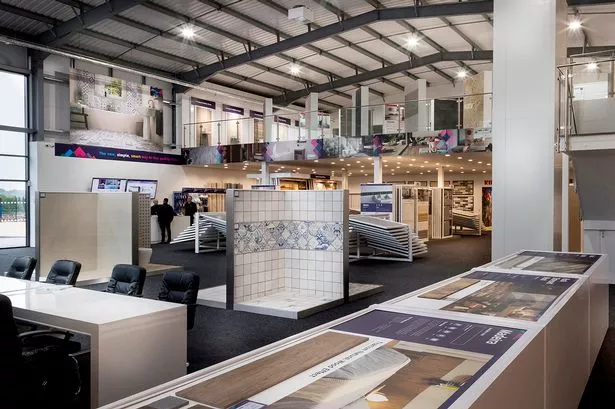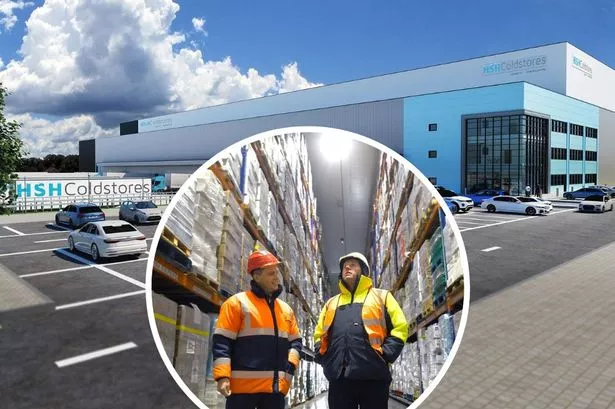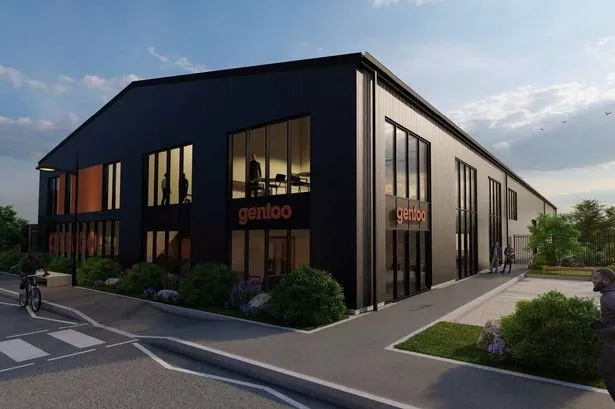
Direct Line agrees £3.7bn Aviva takeover deal
Direct Line's board has given the green light to Aviva's £3.7bn acquisition proposal, signalling the end of its tenure as an independent entity. In a statement released to the stock exchange this morning, Direct Line's board recommended Aviva's latest £3.7bn bid for the company. According to the terms of the agreement, shareholders will receive 0.2867 Aviva shares, in addition to 129.7p in cash and a potential dividend of up to 5p per share. The offer places a 73 per cent premium on Direct Line's closing price on 27 November, the day before the offers started coming in, or 49.7 per cent above its six-month average share price, as reported by City AM. Post-deal completion, Direct Line's shareholders are set to hold approximately 12.5 per cent of Aviva. While Direct Line initially turned down Aviva's preliminary overtures, it indicated earlier this month that it would likely support a firm offer exceeding £3.6bn. "This deal is excellent news for the customers and shareholders of Aviva and Direct Line," Direct Line’s CEO Amance Blanc remarked today. "It builds on our track record of delivering four years of strong financial performance and, in line with our strategy, it accelerates our growth in capital light business." The announcement follows Direct Line's rejection of two previous takeover attempts by Belgian insurance titan Ageas this year, with the most recent bid valuing the company at £3.1bn. Should the shareholders give their nod of approval in the March vote, Aviva's acquisition is expected to be finalised by mid-2025.

OpenWorks Engineering seals £80,000 grant towards new Northumberland facility
Northumberland tech company OpenWorks Engineering has secured an £80,000 grant to help build a new manufacturing and research facility to support its growth plans. OpenWorks was launched in 2015 by a team of engineers who pooled their resources and expertise to launch new counter terrorism products, including equipment which captures rogue drones and brings them to earth. The Prudhoe-based company has since become a leader in the defence and security technology industry, with its SkyWall systems being used by a number of government authorities, militaries and private security organisations to provide close protection to the likes of airports, major infrastructure and even world leaders at summits. It also protected the last two US presidents on diplomatic visits and been used by the US Army for training sessions. The company currently employs 18 full time members of staff with plans to grow further. After learning about Northumberland Small Business Service (NSBS), bosses at OpenWorks registered online to learn more about the support available and how the company could benefit from the service. OpenWorks applied for the £80,000 capital grant from NSBS last November, and it has already hired three new permanent full-time members of staff. The grant has enabled OpenWorks to build a new manufacturing and research facility, with new capabilities it says “would not have been possible without the funding”. The firm has also expanded its product range with the grant, which has also delivered a boost to its development and manufacturing capabilities. A spokesman for OpenWorks said: “The team have been extremely supportive, and readily available to answer any queries we have had regarding grants or support for small businesses. It has been a brilliant experience from start to finish.” Liz Nelson, interim programme manager for the Northumberland Small Business Service Team said: “It is great to see another local project being boosted by the capital grant funding. We are excited to hear more about OpenWorks and their growth journey, it has been a privilege to work with them”. Eligible businesses can access the £2m rural Capital Grant Investment Fund which supports businesses in rural areas with clear growth plans, to access capital investment to expand their production capacity or diversify into new markets or products.

Plans for 4,500 homes, 3.4m sq ft of employment space and 5,000 Derby jobs set to take step forward
Plans to build 4,500 new homes, 3.4 million sq ft of employment space, and support for 5,000 new jobs in Derby are set to take another step forward next week. The South Derby Growth Zone is being planned for land to the south of the city between Sinfin and Chellaston. The proposals have already received an offer of £49.6 million from the Levelling Up Fund, reliant on a full business case being submitted. Derby City Council cabinet is now set to vote on granting powers for the plans and transferring £500,000 of Homes England Garden Villages funding to the Derbyshire County Council so that it can finalise the business case. The scheme incorporates Infinity Park Derby, a planned 100 acre business park next to the world headquarters of Rolls-Royce Civil Aerospace and within 15 minutes of blue chip manufacturers such as Toyota, Alstom and JCB. It is backed by Derby City Council, the Harpur Crewe Estate and Rolls-Royce along with developers IPD LLP, Wilson Bowden and Peveril Securities, and could offer potential tenants design and build packages up to 500,000 sq ft. Meanwhile the neighbouring Infinity Garden Village would be one of 14 new garden villages announced by the Government in 2017 to try and help meet local housing needs – especially for first-time buyers. In anticipation of the plans the county council is set to gain highways powers within the city boundary to allow work to start on a junction and link road off the A50, which runs along the southern edge of the plans. The city council said without the new junction only around 280 of the possible 4,500 new homes would be possible. Councillor Steve Hassall, city council cabinet member for regeneration, decarbonisation, strategic planning and transport, said the recommendation will be discussed at the cabinet on Wednesday, February 15. He said: “The South Derby Growth Zone is a big opportunity to deliver high quality housing and jobs for Derby, whilst also providing a brand-new transport link in the south of the city. “Entering into these collaborative agreements demonstrates our commitment to the project and to the city.

Bristol office market predictions for 2025
As with regional office markets across the country, a theme we’re predicting for Bristol in 2025 is a period of undersupply of quality stock. A total of 705,021 sq ft of new and refurbished space is expected to complete by the end of the year across developments including The Welcome Building, 3 Rivergate and The Crescent, leaving the city’s grade A availability rate standing at 2.5%. There is a further 81,000 sq ft of refurbishment projects currently under way and due to complete in 2026, but we need to see more new office development in the pipeline if the city is to continue to be an attractive place to do business in the longer term. Following the immediate switch to home working during the pandemic, businesses are now starting to adjust closer to pre-Covid working practices, and although hybrid working is a trend that seems here to stay, many are spending more time back in offices. More businesses are also mandating a minimum number of days in the office, and this trend is expected to continue in 2025. With that has come the flight to quality, with occupiers looking to invest in high quality spaces which have the ESG credentials that employees value. The push for greener buildings is also prompting more landlords to consider comprehensive refurbishments or redevelopments, often leading to discussions about mixed-use conversions. This presents an opportunity to align sustainability investments with broader asset transformation. Although more office stock is needed, developers remain cautious, with borrowing and construction costs still high and limited downward pressure on yields. In the short-to-medium term, we expect that supply in Bristol will continue to be restricted without significant market shift to help bring new developments forward. We have already seen significant rent increases, as developers implement the kind of sustainable measures that modern occupiers are demanding. This is undoubtedly a challenge, however in Bristol we have seen that despite the tough economic climate, businesses are prepared to pay more to achieve the best space because of that flight to quality. Bristol has demonstrated that occupiers are prepared to pay a premium if the product is right. The city saw one of the largest prime rent increases in the country in 2024, reaching close to £50.00 per sq ft, an increase of 18%, which bodes well for 2025, especially for those looking to invest in new developments in the city.

Tile Mountain signs new transport deal with Pall-Ex
Online tile store Tile Mountain has renewed its transport deal with Pall-Ex having already worked together for seven years. The Leicestershire logistics giant will continue to manage Tile Mountain Group’s local, national and International palletised freight distribution. Tile Mountain, which has a 120,000 sq ft warehouse, showroom and office complex on a 10 acre site in Stoke on Trent, has grown rapidly since its 2013 launch, selling floor and wall tiles for the home and outdoors. Some 18 per cent of its sales are in London. Recently posted accounts for Tile Mountain Limited showed an overall group turnover of £72 million in 2021, up from £48.6 million. Pre-tax profits were £3.9 million, up from £2.6 million. Pall-Ex will help support the retailer’s growth using its transport network and IT infrastructure, and through regular management meetings between the two businesses to improve the way they work together. As part of the working relationship Pall-Ex has an onsite advisor based at one of Tile Mountain’s offices. Tile Mountain managing director Jeremy Harris said: “As an online retailer, Tile Mountain Group's business strategy relies heavily on distribution, and as the company continues to grow, we seek to further forge relationships with suppliers who can consistently deliver outstanding standards of service. “Pall-Ex's tracking technology has aided the Tile Mountain delivery process and we are already seeing the benefits from advancements in their systems, such as ‘what3words’ for first-time delivery.” Pall-Ex Group’s UK commercial director Michelle Naylor said: “We are delighted that our strong relationship with Tile Mountain is set to continue. “As its business grows and customers’ service expectations grow, we will be able to support any changes with our dedicated customer service advisor which will remain active and responsive to market demands. “We look at service needs for all parts of the country that Tile Mountain serves and will maintain our focus on supporting its important London delivery requirements.”

£5m boost defrosts huge Grimsby cold storage expansion after costs soared on £30m plant
Grimsby’s cold storage capacity is to be increased by 20 per cent after £5 million of government support was netted for a key project. Brexit and Covid have put pressure on a vital element of the wider seafood sector, with it trading at over-capacity for the past six months, as just in time imports have switched to more considered buying by the town’s cluster of processors. The £30 million Europarc proposal from HSH Coldstores is fully consented and will create 60 new jobs, with the potential to unlock hundreds more in Grimsby. It was the lead beneficiary from the first round of the UK Seafood Infrastructure Fund, with £20 million being invested nationwide. Read more: Seafood processor swoops for neighbouring home delivery specialist A further £2.4 million has been awarded to JCS Fish to expand its processing operations in the town, with cash for projects in Fort William, Peterhead and Alness in Scotland, for Mowi, Denholm Seeafoods and Aquascot; Shoreham Port for vessel maintenance and Falfish Ltd in Newlyn ad Mevagissey. Henry Pringle, chief operating officer for Constellation, HSH's parent company, welcomed new Fisheries Minister Mark Spencer to the existing Birchin Way site, taking him on a tour of the huge operation. He said: “We are running at over-capacity, we’re storing in the aisles, it is everywhere, and it is not just us. Everyone in Grimsby is full. We see that as a major impediment to Grimsby industry, processing depends on cold storage and occupancy at the moment creates tonnes of additional cost. We cannot take in additional customers, and we’re having to shuttle to the Midlands and Peterborough. “Grimsby being the centre of fish and seafood processing in the UK, a lot of the supply chains are dependent on imports. This is the main fish and chip shop warehouse for the UK.” Cold storage is required for raw product, ingredients for value-added processing and pre-sale holding, with transportation to and from the cluster adding to the cost, and eroding competitive advantage. Mr Pringle said: “We are looking at building a new facility within Grimsby, supporting 30,000 pallet spaces. There are 150,000 currently, so that will be increasing by 20 per cent.” The 52-year-old second generation business holds a third of the market share in the town, and will employ 200 people when the addition completes, scheduled for early 2024. It is currently being rendered for, and has been hit by inflation in the building materials market. Of the reasoning behind the demand, Mr Pringle said: “We are at peak season going into Christmas, there has been a bounce-back post Covid and Brexit concern means no-one wants just-in-time inventory. The model is now to import and hold greater stock. “We wouldn’t be able to do this without the grant funding. Capital expenditure accelerated, construction costs have gone through the roof and while they have come down, they are not where they started. This really gets us across the line in terms of making it viable.” When first announced in May 2021, with Europarc developer Wykeland, the 171,000 sq ft site had a price tag of £15 million, though 25 new fuel efficient trucks with the latest refrigeration technology are also part of the successful bid. At JCS, a state-of-the-art 2,000 sq m fish processing factory with integrated smokehouse is to be developed, doubling salmon and trout processing capability to 20 tonnes per day. It could bring 32 jobs to the town, while reducing reliance on imports. It came as it was announced in Tromso, Norway, that the next International Coldwater Prawn Forum will be held in Grimsby in 2024, likely to bring more than 200 delegates. The town successfully hosted the World Seafood Congress in 2015. Mr Spencer, appointed to Defra under Liz Truss, and the representative for Sherwood in Nottinghamshire, said: “We are adding value to the processing sector, building extra storage that helps with the supply chains and generates jobs. “This is about investing for the future and making sure we have one of the most robust, sustainable and employable industries in Europe. We are now competing with our colleagues across the water, we want to make sure the UK fisheries sector is robust and fit for the future. “It demonstrates our huge opportunities in this sector, and I think this will assist on that journey, moving forward in the new world post-Brexit, and I think it is great news for the sector, it proves we can do it here in the Uk and do it very successfully.” He rejected the idea it was paying for issues arising from the vote to leave, despite the stated change in business model. “Companies are holding more stock because they are confident in the future and confident they are going to sell it,” he said. Icelandic Seafood International’s decision to exit UK operations, putting 200 jobs at risk in Grimsby, was raised with the Minister. He claimed administrators had been appointed in media interviews, but this was refuted by the business, which is working with specialist MAR Advisors to achieve a sale. The company operates the huge former Five Star Fish plant on Great Grimsby Business Park, having merged two businesses into it as Covid struck UK shores. Mr Spencer said there would be “wrinkles on the way” following Brexit, with the company’s chief executive having pointed to harder trading conditions as part of the reasoning, with losses of £12 million revealed. He said: “It is very sad for these people, losing jobs - potentially - and I hope the administrator can find someone to take it on lock, stock and barrel. With this investment there will be other jobs in fish processing industry and as a nation we have reason to be optimistic about the future.” ISI had announced it was to pull out of the UK in a trading update last week. It is rigorously pursuing a sale, with interest mooted. Following his comments, to several media outlets, Bjarni Ármannsson, Icelandic Seafood International group chief executive, said: "Iceland Seafood is running a sales process on its UK subsidiary, Iceland Seafood UK, after having decided to exit the UK value-added operation. "MAR Advisors have been mandated to run the process. We are currently presenting the company to prospective buyers. As Iceland Seafood is a publicly-listed company we will report the outcome of such a process at an appropriate time to the market. Any suggestions that Iceland Seafood UK is in a liquidation process are false. That is not the case at all." Grimsby MP Lia Nici had earlier in the week taken to social media to air her concerns about finding out about the company’s plight via social media. The Westminster agenda led to her missing Mr Spencer’s visit, but she met with him in London prior to his arrival.
